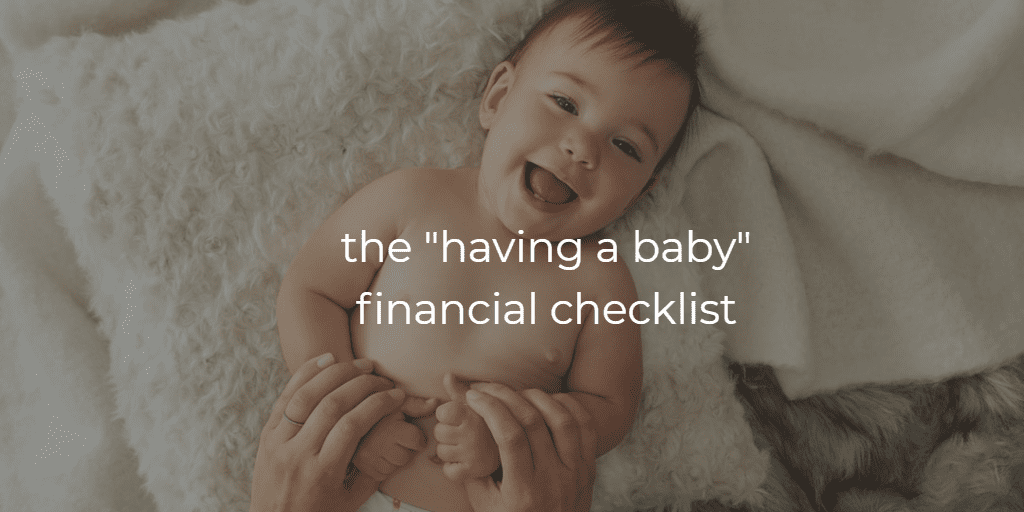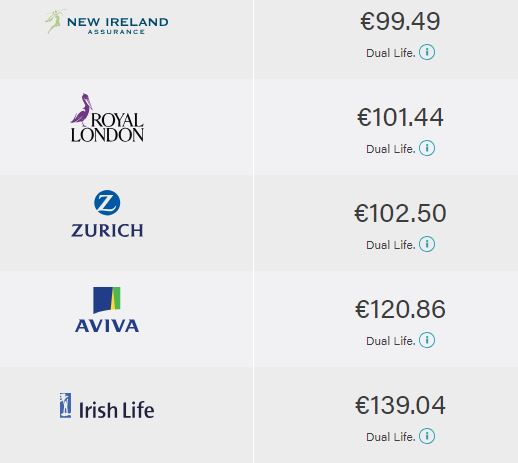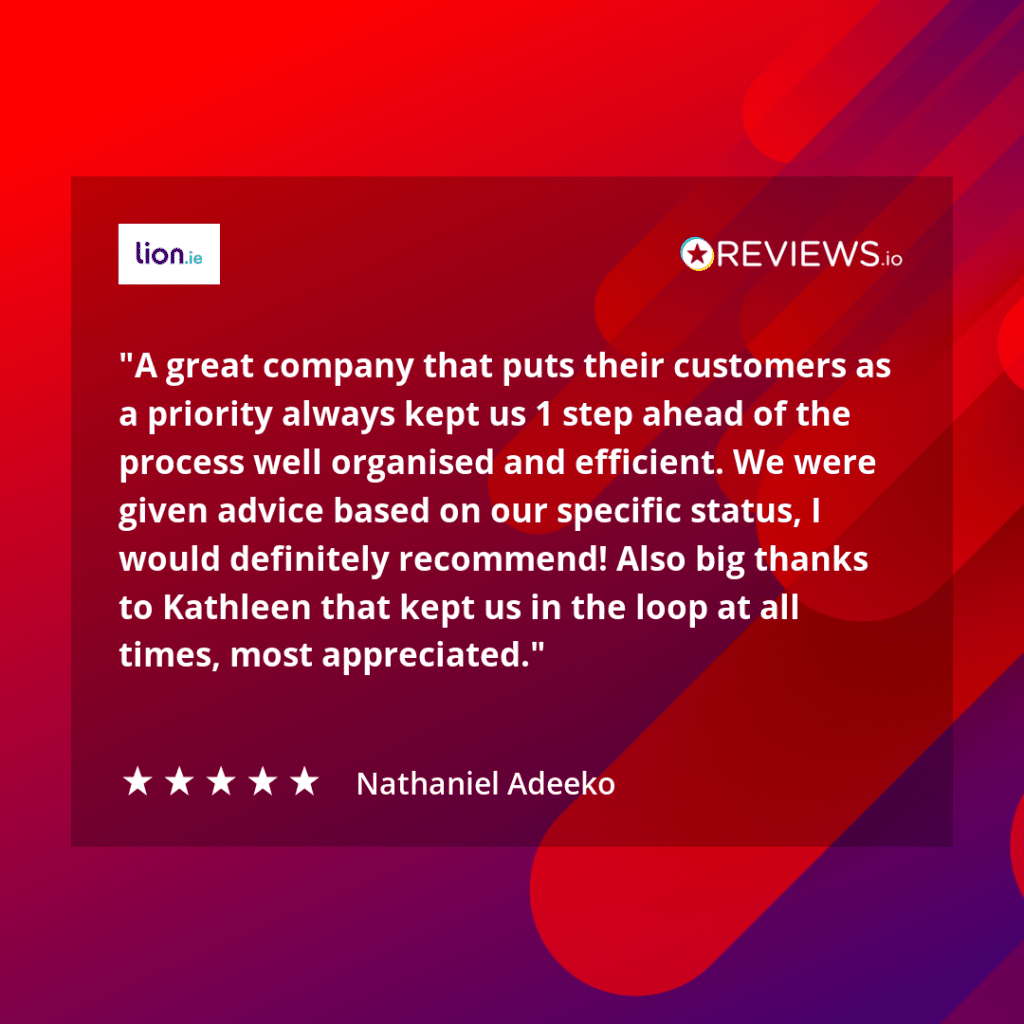The Having a Baby Financial Checklist


Having a baby is just about the most adult thing you do. It’s also wildly rewarding, even if it doesn’t feel like it when they’ve thrown their dinner on the floor (just after you mopped it) or they’ve somehow managed to paint their entire body in a strange concoction of food things (just after you bathed them).
Never estimate the amount of damage a small child can do in five seconds…unattended.
They’re also expensive.
And I know you know they’re expensive, but have you ever considered how much they’ll mooch off you in their first year of life?
They don’t even really do anything for that first year, except eat everything, wobble around on their bellies, cry, and cause ructions – like a teeny tiny drunk person.
To be fair they smell heavenly and are VERY cuddly.
But back to the issue of expense.
According to Irish Times, the first year of your precious baby’s life will set you back €4,170 (not including childcare).
The single big spend categories relate to consumables like milk formula (€58 per month), baby food and nappies and all the other good stuff you’re going to need.
And if you’re having twins, you can double that.
We had twins.


We also had a two year old so had to change the car and buy a 7 seater (back in 2014 there were no 5 seaters with 3 isofix in the back – IYKYK).
Disposable nappies alone are set to cost you €580 a year, so now might be a good time to work on becoming a parenting influencer on Insta and partnering with a nappy brand to tap into all that sweet #spon moolah.
Or you could go reusable!
Good luck with that.
Are you Prepared (Financially) for a Baby?
Look, not everyone has the benefit of making a baby exactly when they’d planned to.
Or maybe Mother Nature will throw one (or more 🤯) in for free. A baby BOGOF so to speak
It could be a case that you’ve just found out and you’re in a mad scramble to get your bits in order.
Or maybe you’re not pregnant yet, but the possibilities are very definitely on the horizon.
Either way, stopping by this blog to see what you should do is a smart first step.
Financial planning is always a good move, especially when you’re facing a big life change – and no life change is bigger than bringing an actual living, breathing and squawking babóg into the world.
Will it be easy? Absolutely not.
Will it be worth it? Probably. I don’t know how they’re gonna turn out so I’m not making you any promises.
All joking aside, there are several things you should do before your sweet cherub’s arrival.
1. How to Apply for Parental Leave in Ireland
Ladies, you’ll need to apply for maternity leave at least six weeks before you intend to go on maternity leave. It’s 12 weeks if you’re self-employed.
Maternity Benefit (to give it its formal title) is paid for 26 weeks at €274 a week.
Some employers will continue to pay you in full, so check your contract or call into HR to see where you’re at.
Paternity Benefit is €274 as well and covers two weeks – which, to be honest, isn’t a whole lot of bonding time for you and the bub.
Think of it as a two-week break that you get to spend with your kid.


You might want to book a holiday directly afterwards where you go somewhere else, without them.
You may have noted that, combined, paid parental leave stacks up to €1,374 a month. For both of you.
So that’s probably less money than you earn + a whole load of new expenses.
Those €580 disposable diapers can go in a bin and you can duct tape some cloth to your baby’s rear end and hope for the best.
Which leads us nicely onto point two.
2. How Does Child Benefit Work in Ireland?
Child benefit is a monthly payment to the parents or guardians of children under 16.
You should apply within 12 months of the birth.
It’s €140 a month for each child or if like me, you’re lucky enough to have twins, you get €210 per child.
That really took the sting out of having to fork out for a 7 seater 🙄
Once you’ve sorted out your parental leave and benefits and you know where you stand with child benefit, you should be better prepared to figure out the intricacies of your budget.
You might need to draw the purse strings for the first couple of months while you buy all the bits and pieces – and remember you don’t necessarily need a pram that costs €2k!
We foolishly forked out for an iCandy for child number one, the twins made do with a Tesco trolley and some strategically placed cushions.
3. Can You Save A Few Quid Before Baby Arrives?
It’s also worth taking the time to look into any long-standing contracts you have on things like TV, broadband, phones, gas, or electricity.
Presuming you’re not on a new contract, there should be wiggle room to get a cheaper deal elsewhere – and you’d be surprised what you can save if you call them up and tell them you’re thinking of moving to a new provider.
A whole new deal can come out of the woodwork, and every little helps.
By the way, you can forget about having any time to watch box sets so you can go ahead and cancel Netflix.
Instead let me introduce Upsy Daisy.
She’s gas (especially at 5am)
4. Look into Insurance (or take another look at the policies you already have)
Your first port of call is health insurance, especially if you are the person who is literally going to be birthing the child.
Childbirth has come a loooong way since birthing stones, but it’s tough going and can have complications.
The last thing you want to worry about is money if you or the bub (god forbid) have health problems during or after the birth.
If you’ve got private health insurance, look into what your policy covers but drill down for the details on maternity benefits.
It’s absolutely worth looking around to see which insurer offers the best deal as there could be some decent perks in it for you.
Just be aware that insurers may have a waiting period of up to 52 weeks before you can claim maternity benefits, so if you’ve found out you’re pregnant rather than you’re planning to get pregnant, it may not be an option for you.
You should also look into Life Insurance.
And, look, don’t get me wrong: I don’t want to get morbid about any of this, but if you’re starting a family, you really do need to get serious about life insurance.
That mortgage protection you bought years back protects the bank, not your family.
The big question Life Insurance answers is, “how will I protect my love ones if I’m not here?”
We’ve already looked at the reality of the expense of having a baby so I’m not going to keep beating that drum.
Instead let’s look at why you might get Life Insurance.
In its simplest form, it’s a lump sum paid out to your family if you die.
It’s a tax free payout to your spouse but is liable to tax if you’re not married.
If you’re not married, buy two single policies and pay each other’s premiums.
Life Insurance exists to replace the income you would have brought in had you not popped your clogs.
Yes, it’s awful to think about and yes, sorry for wrecking your new baby buzz, but it’s something you seriously need to consider.
Essentially, you’re paying for peace of mind.
The big question, then, is how much would cover set you back?
Which leads to another question: how much life insurance cover do you need/how much do you want the lump sum to be?
You might be tempted to think this is an elaborate get-rich-quick scheme from beyond the grave, and settle on a few million quid, but that’s not quite how it works.
An easy way to think of it is in terms of a monthly income replacement.
Maybe you’d like to leave behind €2,000 a month – or work on a yearly scale and multiply it out by how many years you’d like your family to be covered for.
I go into the maths of it all in this article about how much Life Insurance cover you really need.
Let’s say you’re both 35, non-smokers and no health issues.
A policy that will pay out half a million if one of you passes in the next 20 years comes in at €99 per month (in total for you both)


A tip: I strongly advise you get cover that lets you renew your policy when you’re older without any health checks.
Otherwise, if you outlive your policy (yay!) getting re-insured when you’re older and a bit more hobbled will be a lot more expensive (noooo!).
Also, it’s worth it to compare all the insurers and the policies they offer to make sure you’re getting the best deal for you.
If you’re taking advice from the bank, remember they are tied to one insure so can’t give you advice on other available products. (see above quote – don’t get ripped off)
Of course, you can do it yourself, or save yourself some hassle and ask a broker (like me!) to do it for you.
Then you can go back to daydreaming about nursery colour schemes and how much better your kid is gonna be than those other pesky, snot-nosed kids in your neighborhood.


Over to you…
If you’re considering applying for Life Insurance before the bub arrives, please complete this questionnaire and I’ll make a recommendation for you.
Orrrrrrr you can schedule a time that suits here.
Chat soon (and good luck!)
Nick
lion.ie | making life insurance breezy
Editor’s Note | We first published this article in 2019 and have regularly updated it since.








